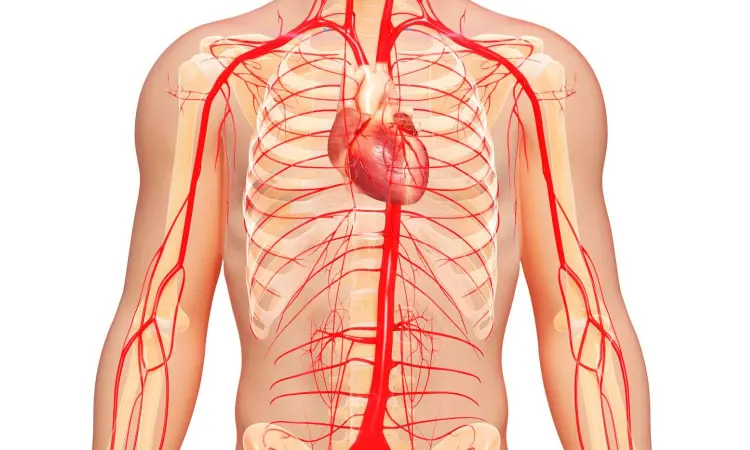- Home
- Medical news & Guidelines
- Anesthesiology
- Cardiology and CTVS
- Critical Care
- Dentistry
- Dermatology
- Diabetes and Endocrinology
- ENT
- Gastroenterology
- Medicine
- Nephrology
- Neurology
- Obstretics-Gynaecology
- Oncology
- Ophthalmology
- Orthopaedics
- Pediatrics-Neonatology
- Psychiatry
- Pulmonology
- Radiology
- Surgery
- Urology
- Laboratory Medicine
- Diet
- Nursing
- Paramedical
- Physiotherapy
- Health news
- Fact Check
- Bone Health Fact Check
- Brain Health Fact Check
- Cancer Related Fact Check
- Child Care Fact Check
- Dental and oral health fact check
- Diabetes and metabolic health fact check
- Diet and Nutrition Fact Check
- Eye and ENT Care Fact Check
- Fitness fact check
- Gut health fact check
- Heart health fact check
- Kidney health fact check
- Medical education fact check
- Men's health fact check
- Respiratory fact check
- Skin and hair care fact check
- Vaccine and Immunization fact check
- Women's health fact check
- AYUSH
- State News
- Andaman and Nicobar Islands
- Andhra Pradesh
- Arunachal Pradesh
- Assam
- Bihar
- Chandigarh
- Chattisgarh
- Dadra and Nagar Haveli
- Daman and Diu
- Delhi
- Goa
- Gujarat
- Haryana
- Himachal Pradesh
- Jammu & Kashmir
- Jharkhand
- Karnataka
- Kerala
- Ladakh
- Lakshadweep
- Madhya Pradesh
- Maharashtra
- Manipur
- Meghalaya
- Mizoram
- Nagaland
- Odisha
- Puducherry
- Punjab
- Rajasthan
- Sikkim
- Tamil Nadu
- Telangana
- Tripura
- Uttar Pradesh
- Uttrakhand
- West Bengal
- Medical Education
- Industry
Ozone exposure linked to hypoxia and increased arterial stiffness, finds study

Ozone (O3) exposure may reduce the availability of oxygen in the body, resulting in arterial stiffening due to the body's natural response to create more red blood cells and hemoglobin, according to a study published today in JACC, the flagship journal of the American College of Cardiology.
Hypoxia is a shared pathogenesis of ozone associated diseases; therefore, we hypothesized that O3 exposure may induce changes in hypoxia-related markers, leading to adverse cardiovascular effects.
“Researchers found that even brief exposure to elevated ozone levels reduced blood oxygen saturation, triggered hypoxia-related biomarkers, and increased arterial stiffness, highlighting the novel connection between ozone exposure and arterial stiffness, demonstrated through comprehensive biomarker analysis in a high-altitude setting,” said Dr. Harlan Krumholz, MD, SM, Editor-in-Chief of JACC. “This study uniquely isolates ozone’s effects from other pollutants, providing a critical step forward in understanding its independent role in cardiovascular injury.”
Ozone pollution is becoming a worldwide health issue. Recent studies have linked O3 exposure with an increased risk of cardiovascular diseases (CVDs), including ischemic heart disease, stroke, heart failure, and atherosclerosis. Hypoxia, or the deficiency of oxygen in the body, is recognized as a pivotal factor in O3-associated CVDs.
Researchers concluded that ozone exposure may reduce oxygen availability, prompting compensatory increases in red blood cells and hemoglobin, which exacerbate arterial stiffening. These findings provide new insights into the mechanisms underlying O3-induced cardiovascular injury.
Reference:
Qiaoyi Hua, Xin Meng, Wu Chen, Yifan Xu, Ruiwei Xu, Yunxiu Shi, Jiajianghui Li, Xueling Meng, Ailin Li, Qianqian Chai, Mengshuang Sheng, Yuan Yao, Yunfei Fan, Ruohong Qiao, Yi Zhang, Teng Wang, Yidan Zhang, Xiaoyu Cui, Yaqi Yu, Haonan Li, Rui Tang, Meilin Yan, Bu Duo, Danzeng Dunzhu, Zhuo Ga, Lei Hou, Yingjun Liu, Jing Shang, Qi Chen, Xinghua Qiu, Chunxiang Ye, Jicheng Gong, Tong Zhu, Associations of Short-Term Ozone Exposure With Hypoxia and Arterial Stiffness, Journal of the American College of Cardiology, https://doi.org/10.1016/j.jacc.2024.11.04
Dr Kamal Kant Kohli-MBBS, DTCD- a chest specialist with more than 30 years of practice and a flair for writing clinical articles, Dr Kamal Kant Kohli joined Medical Dialogues as a Chief Editor of Medical News. Besides writing articles, as an editor, he proofreads and verifies all the medical content published on Medical Dialogues including those coming from journals, studies,medical conferences,guidelines etc. Email: drkohli@medicaldialogues.in. Contact no. 011-43720751


